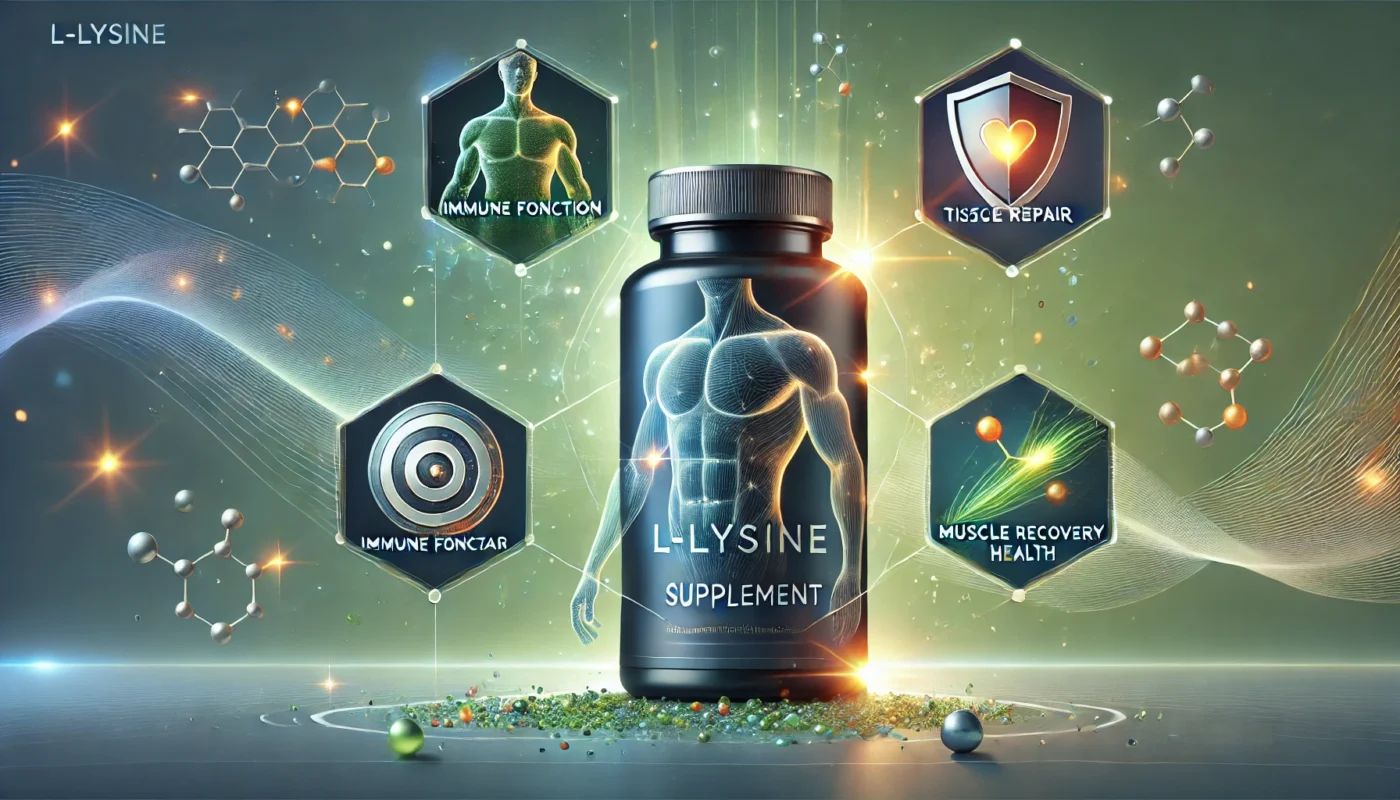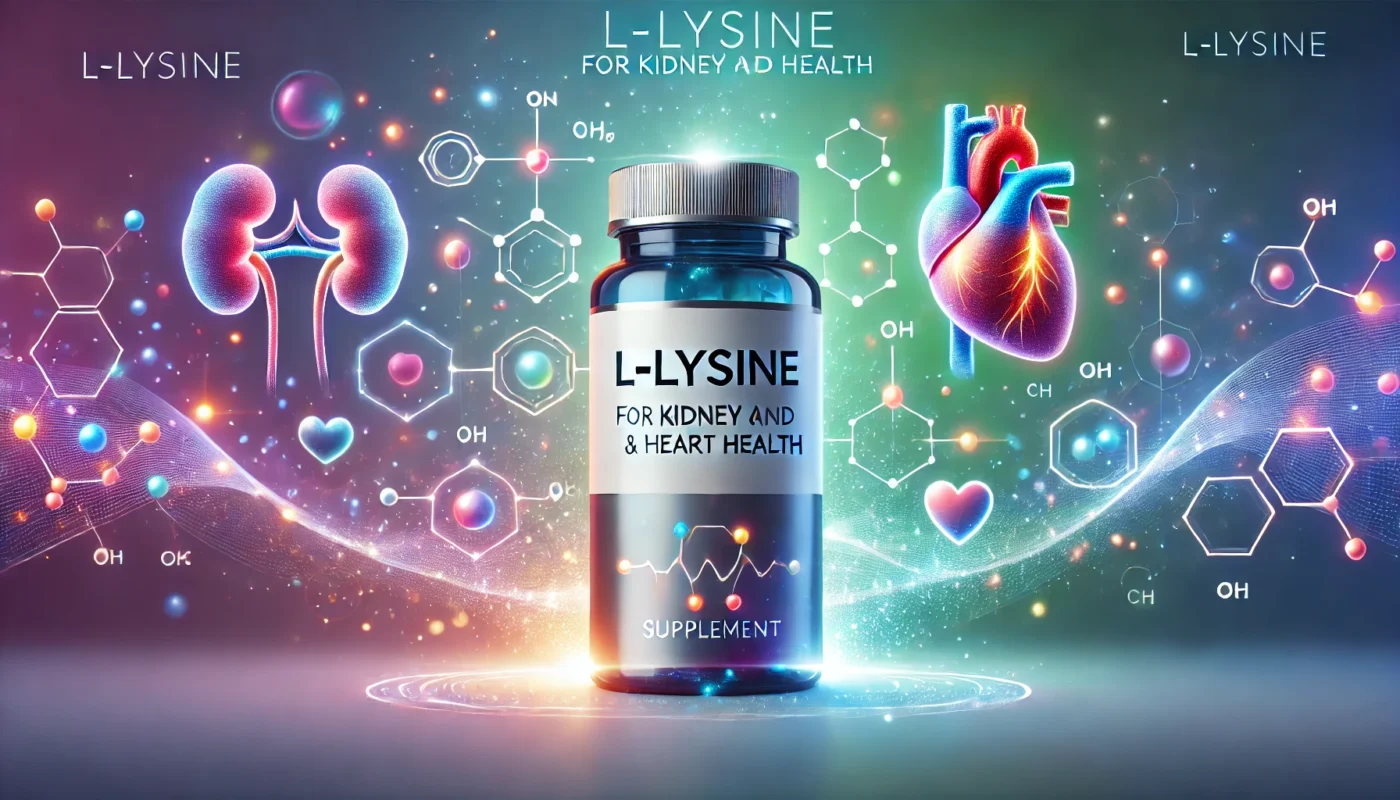L-lysine, an essential amino acid, plays a critical role in various bodily functions, including immune defense, tissue repair, and skin health. While the body cannot synthesize L-lysine, it must be obtained from food sources or supplements. For those seeking to maximize the benefits of this amino acid, understanding the optimal timing and dosage is key. Whether you are looking to enhance immune function, accelerate recovery from exercise or injury, or improve skin health, the right approach to L-lysine supplementation can make a significant difference.
This article provides a comprehensive guide to when and how to incorporate L-lysine into your routine, tailored to your specific health goals. We will explore the best times to take L-lysine, the ideal dosage for different purposes, and scientific findings supporting its effectiveness.
You May Also Like:
The Best Time to Supplement with L-lysine for Different Health Benefits
Are You Getting Enough L-lysine? Signs of Deficiency and How to Correct It
When to Take L-lysine for Maximum Benefits: Timing and Dosage Tips is an original (HSLHealing) article.
What is L-lysine?
L-lysine is an essential amino acid, meaning that the body cannot produce it on its own, and it must be obtained from external sources such as food or supplements. L-lysine is vital for protein synthesis, collagen formation, immune function, and calcium absorption. Commonly found in protein-rich foods like meat, eggs, dairy, and legumes, L-lysine is necessary for the production of enzymes, hormones, and antibodies.

Why Take L-lysine?
Before diving into the timing and dosage of L-lysine, it is helpful to understand why you might consider supplementing with this amino acid. L-lysine has a broad range of health benefits, including:
- Immune Function: L-lysine supports the immune system by producing antibodies that help fight infections and viruses. It is often used to help manage herpes simplex virus outbreaks (cold sores).
- Tissue Repair and Muscle Recovery: L-lysine promotes collagen production, which supports the repair of tissues, including muscles and tendons. It also helps the body recover after intense physical activity or injury.
- Skin Health: L-lysine plays a role in the synthesis of collagen, which is essential for healthy, youthful skin. Studies have shown that L-lysine supplementation can improve the appearance of skin and reduce acne outbreaks.
Given these benefits, L-lysine supplementation can support multiple aspects of your health, but knowing when to take it can enhance its effectiveness.

Best Time to Take L-lysine for Immune Function
L-lysine’s role in immune function is one of its most well-documented benefits. It has been found to help in the prevention of cold sores caused by the herpes simplex virus (HSV), thanks to its ability to reduce the replication of the virus.
When to Take for Cold Sore Prevention
For individuals looking to prevent cold sores or reduce their frequency, research suggests that taking L-lysine during periods of heightened stress or illness can be particularly effective. A study published in The Journal of Clinical Nutrition (2005) found that L-lysine supplementation at a dose of 1,000 mg per day reduced the recurrence and severity of herpes simplex virus outbreaks.
The best time to take L-lysine for immune support is typically in the morning or when you first begin to feel the symptoms of a viral outbreak, such as tingling or itching.

Optimal Dosage for Immune Support
For cold sore prevention or immune function, doses ranging from 1,000 mg to 3,000 mg of L-lysine per day are commonly used. Clinical studies have shown that this dosage can help reduce the frequency of outbreaks and improve recovery times.
A study by The International Journal of Dermatology (1998) found that daily supplementation of 1,000 mg of L-lysine significantly decreased the recurrence of cold sores compared to a placebo.
Best Time to Take L-lysine for Muscle Recovery
L-lysine is a key player in muscle recovery and tissue repair due to its role in protein synthesis. Whether you are recovering from intense workouts or a recent injury, L-lysine can accelerate the process by helping to repair muscle fibers and support the formation of collagen.
When to Take for Post-Exercise Recovery
The timing of L-lysine supplementation in relation to exercise is crucial for optimizing recovery. According to a study published in The American Journal of Clinical Nutrition (2011), consuming L-lysine shortly after exercise may enhance muscle protein synthesis and help with muscle repair.
Post-workout is often the best time to take L-lysine, especially if combined with other amino acids, such as L-glutamine or L-leucine, to maximize recovery. This combination can help replenish amino acid levels in the body, repair muscle tissue, and reduce muscle soreness.

Optimal Dosage for Muscle Recovery
For muscle recovery, a typical dose ranges from 1,000 mg to 3,000 mg per day. Some studies suggest that higher doses (up to 3,000 mg) taken immediately after exercise can support the recovery process more effectively.
A clinical trial published in The Journal of Strength and Conditioning Research (2015) showed that individuals supplementing with 2,500 mg of L-lysine post-exercise experienced faster recovery times and less muscle soreness compared to those who did not supplement.
Best Time to Take L-lysine for Skin Health
Collagen is essential for maintaining healthy skin, as it provides structure and elasticity. L-lysine plays a significant role in collagen production, which can help maintain youthful skin and improve the appearance of blemishes, acne, and fine lines.
When to Take for Skin Health
For skin health, L-lysine is typically taken as part of a long-term regimen to support collagen synthesis. There is no specific time of day that is best for skin health, but regular, consistent supplementation is key.
A study in The Journal of Investigative Dermatology (2009) showed that L-lysine supplementation improved collagen levels and skin elasticity in individuals with signs of aging. For skin health, the recommended approach is to take L-lysine daily, with an emphasis on maintaining consistent levels over time.

Optimal Dosage for Skin Health
The general recommendation for skin health is 1,000 mg to 3,000 mg per day. However, higher doses may be necessary for individuals seeking more significant skin improvements or for those dealing with acne.
A 2016 study in Dermatology Research and Practice found that a daily dose of 2,000 mg of L-lysine reduced acne outbreaks and improved skin tone in adolescents.
General Guidelines for L-lysine Supplementation
To ensure you get the most out of L-lysine, it’s important to follow general guidelines for supplementation:
- Consistency is Key: Regular, daily supplementation provides the best results for immune health, muscle recovery, and skin health.
- Take with Meals: L-lysine is best absorbed when taken with food, particularly meals containing carbohydrates or proteins.
- Avoid Taking with Excessive Arginine: L-lysine and arginine compete for absorption in the body. To maximize the benefits of L-lysine, avoid taking large doses of L-arginine (another amino acid) at the same time.
Potential Side Effects and Considerations
L-lysine is generally considered safe when taken at recommended doses, but it is always important to consult with a healthcare provider before beginning supplementation. Excessive doses may lead to gastrointestinal issues such as nausea or diarrhea. Additionally, people with pre-existing kidney conditions should avoid high doses of L-lysine, as it may exacerbate kidney function issues.

Conclusion
L-lysine is a versatile and valuable supplement that supports immune function, tissue repair, muscle recovery, and skin health. By timing your L-lysine supplementation according to your specific health goals, you can optimize its benefits. Whether you’re seeking relief from cold sores, looking to improve muscle recovery after exercise, or aiming to enhance skin health, incorporating L-lysine into your daily routine is a practical and effective strategy.
For maximum results, consider taking 1,000 mg to 3,000 mg of L-lysine daily, with adjustments based on your health needs. As always, it’s important to consult with a healthcare provider to determine the best dosage and timing for your individual circumstances.

References
- Dietary Supplements and Sports Performance: Amino Acids. Retrieved from: https://pmc.ncbi.nlm.nih.gov/articles/PMC2129148/
- Oral treatment with L-lysine and L-arginine reduces anxiety and basal cortisol levels in healthy humans. Retrieved from: https://pubmed.ncbi.nlm.nih.gov/17510493/
- L-lysine: Its antagonism with L-arginine in controlling viral infection. Narrative literature review. Retrieve from: https://pubmed.ncbi.nlm.nih.gov/35723628/
- Oral nutritional supplementation accelerates skin wound healing: a randomized, placebo-controlled, double-arm, crossover study. Retrieved from: https://pubmed.ncbi.nlm.nih.gov/15220599/
- The Effect of Amino Acids on Wound Healing: A Systematic Review and Meta-Analysis on Arginine and Glutamine. Retrieved from: https://pmc.ncbi.nlm.nih.gov/articles/PMC8399682/
- Importance of amino acid composition to improve skin collagen protein synthesis rates in UV-irradiated mice. Retrieved from: https://pmc.ncbi.nlm.nih.gov/articles/PMC3351609/
Important Note: The information contained in this article is for general informational purposes only, and should not be construed as health or medical advice, nor is it intended to diagnose, prevent, treat, or cure any disease or health condition. Before embarking on any diet, fitness regimen, or program of nutritional supplementation, it is advisable to consult your healthcare professional in order to determine its safety and probable efficacy in terms of your individual state of health.
Regarding Nutritional Supplements Or Other Non-Prescription Health Products: If any nutritional supplements or other non-prescription health products are mentioned in the foregoing article, any claims or statements made about them have not been evaluated by the U.S. Food and Drug Administration, and such nutritional supplements or other health products are not intended to diagnose, treat, cure, or prevent any disease.

